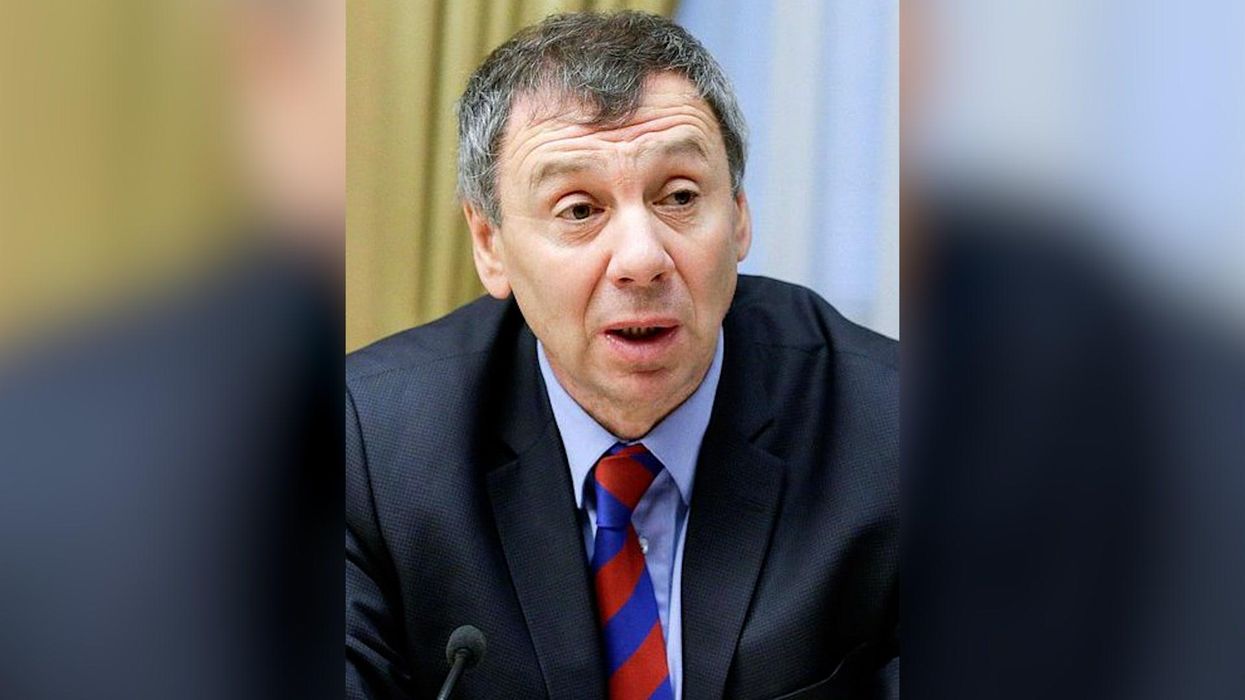Politics
Kate Plummer
Sep 21, 2022
'Absolutely clear' Putin's nuclear threat serious for western countries, says Sergei Markov
Radio 4
Russian president, Vladimir Putin has announced a 'partial mobilization' of troops to the war in Ukraine and made fresh nuclear threats to the West, warning that he is 'not bluffing.'
The announcement is a '“worrying escalation,” a Foreign Office minister has said.
Gillian Keegan also urged for calm in the face of Mr Putin’s threat in his speech to use nuclear weapons.
She told Sky News: “Some of the language there was quite concerning at the end and obviously we would urge for calm.”
The Chichester MP also said: “It’s something that we should take very seriously because, you know, we’re not in control.
“I’m not sure he’s in control either really. I mean, this is obviously an escalation and, of course, for the Russian people now they will be conscripted into this war.”
Sign up to our free Indy100 weekly newsletter
In addition, a former advisor to Putin has said that he may be prepared to use nuclear weapons against Britain. Political scientist Sergei Markov was asked on BBC Radio 4’s Today programme if he believed the Russian leader had made a clear threat not just to use tactical nuclear weapons in Ukraine but also to start a general nuclear war that would kill everyone.
He replied “not everyone” but added it “could kill a lot of people in the western countries”.
Mr Markov said: “It was absolutely clear that Russia has no war against Ukraine. Russia has no reason to use technical nuclear weapons against Ukrainians. Ukrainians are our brothers but Ukrainians are occupied by western countries. It is western countries who are fighting against (the) Russian army using Ukrainian soldiers as their slaves.”
Whether he intends to push the nuclear button or scare people or not remains unclear but if he does and the UK government is affected, there is a clear protocol for what would happen next.
Every prime minister writes four "letter of last resort" upon entering office outlining orders of what to do next in the event of a strike.
They were first used in 1969 when Britain acquired four submarines capable of carrying nuclear weapons - so that's one letter for each submarine, addressed to the Royal Navy commander on board.
The letters are locked in a safe aboard the submarine and destroyed, unopened, every time a new prime minister comes into office. It's not known exactly what they say.
"Prime ministers don't tell you what's in the letters because it would negate the uncertainty of the deterrent," Matthew Seligmann, Professor of Naval History at Brunel University, told the BBC.
"Jeremy Corbyn announced publicly that he wouldn't use the missiles if he became prime minister. This caused some consternation as it eliminated the element of doubt needed for the deterrent to be effective."
James Callaghan was prime minister from 1976-1979. He's the only former leader to reveal what he would've done.
"If we had got to that point where it was, I felt, necessary to do it - then I would have done it," he told a BBC documentary in 1988.
"I've had terrible doubts of course about this. And I say to you that if I had lived after having pressed that button, I would never, never have forgiven myself."
According to a 2008 BBC Radio 4 documentary The Human Button, there were four known options given to the prime minister to include in the letters: retaliate with nuclear weapons, not retaliate, use their own judgement; or place the submarine under an allied country's command.
Let's hope it doesn't come to that.
Additional reporting from PA.
Have your say in our news democracy. Click the upvote icon at the top of the page to help raise this article through the indy100 rankings.
Top 100
The Conversation (0)














